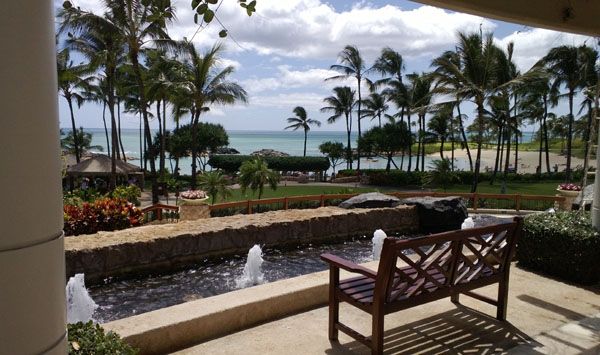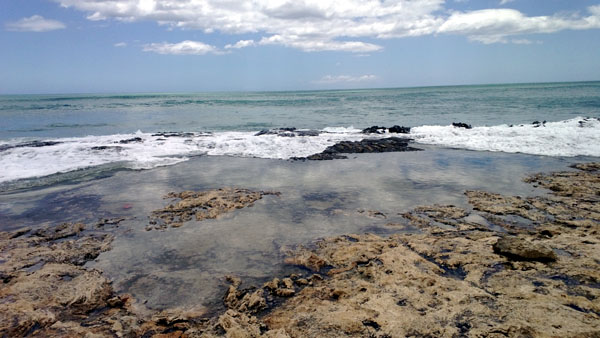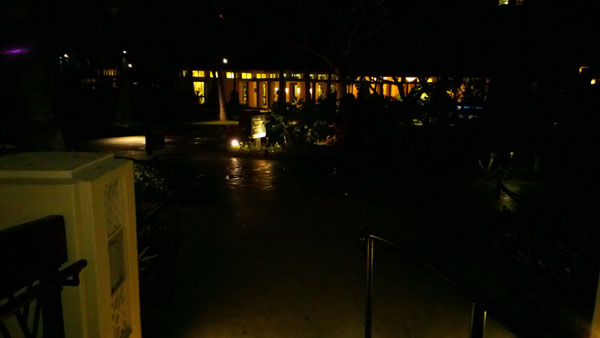Living in the Aloha State
“Aloha, interjection (Ə-‘lo-(h)ä)
used as a greeting or farewell
Hawaiian, from aloha; love
First Known Use: 1820.”
-Miriam-Webster Dictionary
“Daddy, can we live here?” My Daughter asked.
I looked around at the cool white sand, bright blue water and smiling faces. I breathed the warm, fragrant air—lightly salted from the sea—and truly couldn’t blame her.
We know I don’t enjoy plane rides, so a total of four planes with 24 hours in the air is not something that I’d relish. But I would do it again for Hawaii, in an instant.
Yes, it was the island setting—and probably being on a great resort didn’t hurt—but there was something more, something that I began to call “The Hawaiian ethos” that was like manna to me there. I realized over our last few days that this, most of all, is what I would miss. It was the Chief of Resort Security, at 4am, who showed me that this, most of all, is what I could take home with me.
Not a “Where” but a “What”
“Aloha: The joyful sharing of life energy in the present.”
– Common cultural definition
based on Hawaiian language roots of words in “Aloha”
Statistically, through out the United States “the state you live in may affect your state of mind, according to new report that shows that rates of stress, depression, and emotional problems vary by geographic region.” Feel free to click on the link and see where your state stacks up—mine is in the middle of the pack—but the important note is that Hawaii is at the bottom “where only 6.6 percent of people report frequent mental distress.” (Mann, 2009)
My primary question, as I ran my last run up the beach, rode through the night on a plane and resumed my life at home, was “why?”
My brother-in-law provided the first piece; that it was all about “Aloha.” My research led me to another shocking answer: Aloha is the state law in the Aloha State.
Part of the reason why Hawaii was “officially designated as ‘the Aloha State’” in 1959 was because Aloha, and the Aloha Spirit are key to their cultural identity. “Aloha is more than a word of greeting or farewell or a salutation,” reads Act 186 of Hawaiian State Law, “Aloha means mutual regard and affection and extends warmth in caring with no obligation in return. ‘Aloha’ is the essence of relationships in which each person is important to every other person for collective existence. . . .’” (Resolution 97-117)
Aloha is literally the law of the land. Again, quoting directly from Hawaii State Law; “WHEREAS, Act 186, Session Laws of Hawaii 1986, further recognized the ‘Aloha Spirit’ as a life force which is expressly stated in HRS Section 5-7.5…is personified by the warmth, friendliness and sincerity of Hawaii’s people…BE IT RESOLVED by the Council of the City and County of Honolulu that it requests city employees to use the words ‘aloha’ and ‘mahalo’ as official expressions of the “aloha spirit” and BE IT FURTHER RESOLVED that the Managing Director’s Office conduct ‘aloha spirit’ training classes…”
So, according to Resolution 97-117, and other sections of Hawaiian State Law, Aloha is:
– Mutual regard and affection
– Warmth and caring with no obligation of return
– Friendliness and sincerity
– The essence of relationships in which each person is important to every other person for collective
existence.
How would your mental state be, if this was the very law which governed public action and interaction? Yeah, mine would be 93% chillin’, too.
It’s Not a “Where” but a “Why”
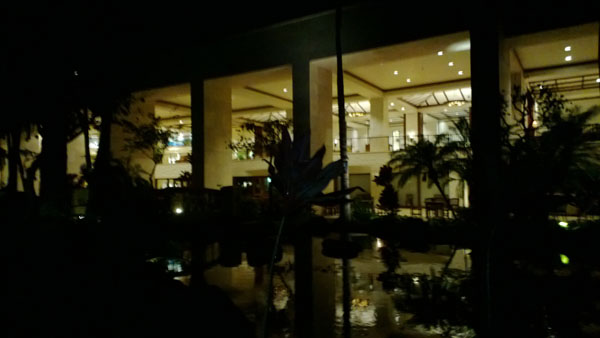
“Aloha: God in us.”
– Old Hawaiian Definition
Moving from the external law of the land, to the internal Law of Life, we still find that Aloha is the key. According to prominent Hawaiian author Curby Hoikeamaka-Rule, children are taught that “Aloha is being a part of all, and all being a part of me. When there is pain – it is my pain. When there is joy – it is also mine. I respect all that is as part of the Creator and part of me.”
That respect manifests as a formative assertion that “I will not willfully harm anyone or anything. When food is needed I will take only my need and explain why it is being taken. The earth, the sky, the sea are mine to care for, to cherish and to protect. This is Hawaiian – this is Aloha!” (Rule, 2001)
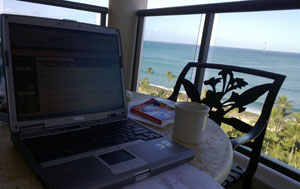 As children grow into adults, Aloha also grows with them into a code of ethics that is “derived from one of the acronymic meanings of Aloha.”
As children grow into adults, Aloha also grows with them into a code of ethics that is “derived from one of the acronymic meanings of Aloha.”
A, ala, watchful, alertness
L, lokahi, working with unity
O, oia’I’o, truthful honesty
H, ha’aha’a, humility
A, ahonui, patient perseverance (Rule, 2001)
The balance and harmony with nature are taught to children is just as important as the code taught later. In this way the living Hawaiian is living “Aloha” or with “The Aloha Spirit.”
Living in the Aloha State…of Mind
“Aloha is indeed a way of life, an attitude and it even contains
guidelines to help us in our lives.”
– Curby Hoikeamaka-Rule
It was 4am and I was making my last run of the coast, taking the darkened pictures that you see here. I had just realized that these moments—the still, serene, magical moments—were my Hawaiian experience. For me, it was not the beach (though profoundly beautiful), the many pools played in with my family (though fun and fulfilling) or even the tropical ambiance. There was something in the quiet; a contentment that seemed to transcend and transform all the resort qualities into something restorative. Rule, if he were there, could have pointed me toward yet another definition of Aloha, that of “Breathing in the present moment” and its conveyance of the manna, or spiritual influence of that moment. (Rule, 2001)
Instead, Eveni To’Oto’o, Chief of Resort Security, found me. He came forth from the golf cart like some great Polynesian God; an Easter Island monolith in a monogrammed flower-print shirt. “Is there any trouble, sir?” He asked.
I’m not sure what he expected from the sweaty mainlander snapping low-light photographs but it surely couldn’t have been the half-formed, fumbling grasp at what you’ve just read—in its infancy, but that was what I gave him. I told him of my mystification at “the Hawaiian ethos,” the magic of the still pre-dawn, and the power of something that I as yet had no words for, but may have deeply affected me.
 What he gave me was a smile. “Thank you for your unique perspective on our island. I’ve never heard that way before.” He gave me his card. “Aloha,” he said as he left. I did not say it back. I never was comfortable saying it, except right before I got on the plane, when I said it with my family to the island itself.
What he gave me was a smile. “Thank you for your unique perspective on our island. I’ve never heard that way before.” He gave me his card. “Aloha,” he said as he left. I did not say it back. I never was comfortable saying it, except right before I got on the plane, when I said it with my family to the island itself.
“Overall, though, frequent mental distress seems to be on the rise,” CNN reported. Outside of Hawaii, nearly two-thirds of American states are facing increasing mental distress. (Mann, 2009) But “…the word Aloha holds within itself all one needs to know to act rightfully in the natural world.” (Rule, 2001)
So, here is what I will do.
Just as the law governs our actions, I will let the law of Aloha govern mine. Since everyone is essential to others’ existence, I shall act with mutual regard and affection, show warmth and caring with no obligation of return. I shall be friendly and sincere.
Since ethics guide our situational decisions, I shall use the acronym to ensure that I am watchful, alert, working with unity, honest, humble, and patiently perseverant.
But, as the guiding principle over all, I shall breathe in the moment and joyfully share life energy in the present. I shall be still, because that was what Hawaii gave to me. Powerful stillness.
“Daddy, can we live here?” My Daughter had asked.
Yes, we all can. You can live in the Aloha state of mind no matter where you live. One little word holds the key, and it also means “Hello” and “Goodbye.”
Aloha, my friends.
__________________________________________________
City and County of Honolulu, Hawaii. (2013). Honolulu City Council Policy Resolution 97-117. Retrieved from: http://www1.honolulu.gov/refs/cclpol/97-117.htm
Mann, D. 2009. Feeling stressed? It’s more likely in some U.S. states than others. CNN. Retrieved from: http://www.cnn.com/2009/HEALTH/04/15/healthmag.stress.states/index.html
Rule, C. (2001). The Deeper Meaning of Aloha. Aloha International. Retrieved from: http://www.huna.org/html/deeper.html

